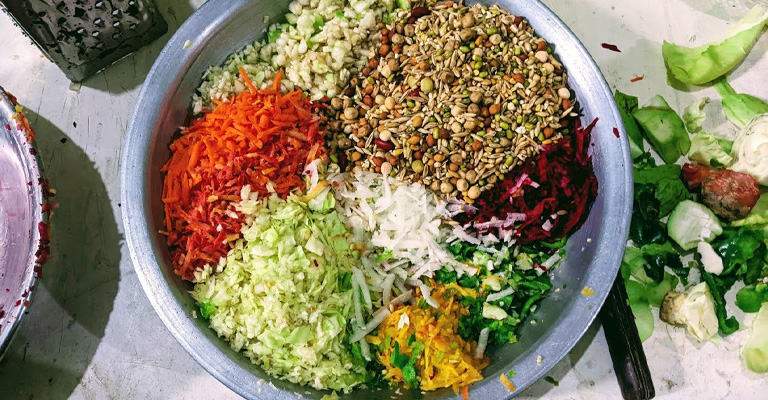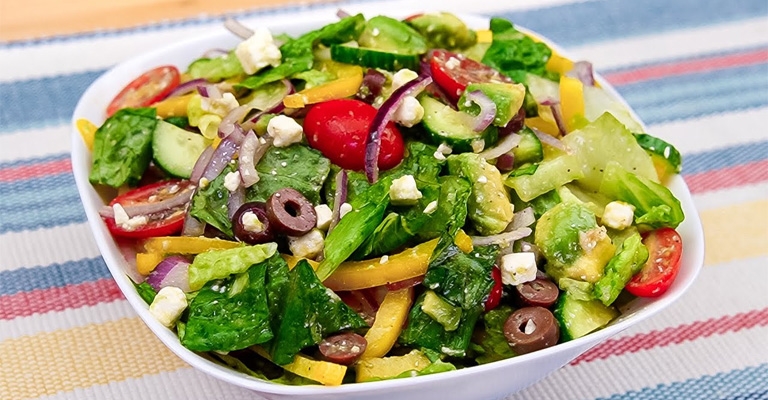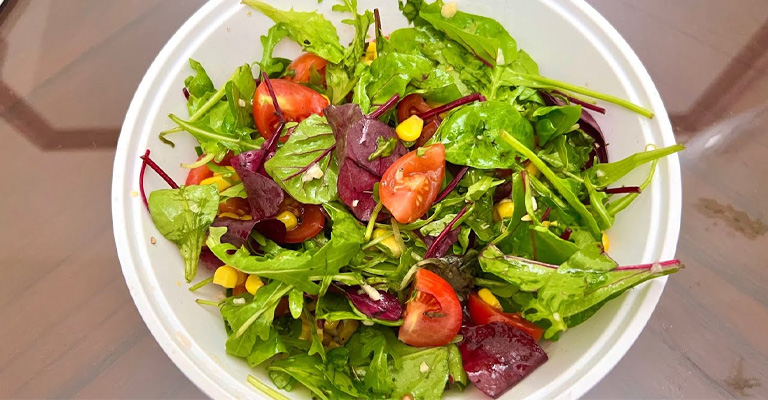Providing a well-balanced and nutritious diet is fundamental to maintaining the health and vitality of pet birds.
The question of what constitutes healthy food for these feathered companions is crucial, as their dietary requirements are different from those of other pets.
A proper diet not only supports physical health but also impacts their overall well-being, including feather quality, energy levels, and immune function.
Understanding what is the healthy food for pet birds ensures that they receive the essential nutrients necessary to thrive and enjoy a long and fulfilling life.

What Is The Healthy Food For Pet Birds?
Providing a healthy and balanced diet is essential for the well-being of your pet birds. Here are some nutritious foods that contribute to their optimal health:
Pellets
High-quality bird pellets are formulated to provide a balanced combination of nutrients, including vitamins, minerals, and proteins. They offer a consistent base for your bird’s diet.
Fresh Fruits
Offer a variety of fresh fruits such as apples, bananas, and berries. These provide essential vitamins, antioxidants, and hydration. Avoid avocados, which are toxic to birds.
Dark Leafy Greens
Vegetables like kale, spinach, and collard greens are rich in vitamins, minerals, and fiber. They contribute to a bird’s overall health and support proper digestion.
Colorful Veggies

Carrots, bell peppers, and sweet potatoes are high in beta-carotene, vitamin C, and other nutrients that boost the immune system and maintain healthy skin.
Whole Grains
Whole grains like quinoa, brown rice, and whole wheat pasta provide complex carbohydrates and fiber for sustained energy and digestive health.
Legumes
Lentils, chickpeas, and beans are excellent sources of plant-based protein. Cooked legumes offer protein, vitamins, and minerals while adding variety to their diet.
Seeds

While not a primary food source, seeds like millet and sunflower seeds can be offered as occasional treats. Moderation is key due to their high-fat content.
Nuts
Nuts such as almonds, walnuts, and pistachios provide healthy fats, protein, and nutrients. Offer them sparingly as a source of energy and enrichment.
Herbs and Edible Flowers
Fresh herbs like basil, parsley and edible flowers such as dandelions or marigolds can provide variety, flavor, and added nutrition.
Balancing these foods and offering a diverse range of nutrients is essential. Consult your avian veterinarian to determine the specific dietary needs of your bird’s species, as well as any additional supplements that might be required.
Providing a well-rounded diet supports your pet bird’s overall health, longevity, and happiness.
What Food Is Best High In Vitamin Sources For Birds?

Ensuring that pet birds receive a diet rich in vitamins is crucial for their overall health and well-being.
Here are some foods that serve as excellent sources of vitamins for birds, along with descriptions of each:
Dark Leafy Greens
Vegetables like kale, spinach, and Swiss chard are packed with vitamins A, C, and K. These antioxidants support immune function and promote healthy feather growth.
Carrots
Carrots are a great source of beta-carotene, a precursor to vitamin A. This essential nutrient aids in maintaining healthy eyesight and skin.
Sweet Potatoes
Rich in vitamins A and C, sweet potatoes provide essential antioxidants and contribute to a bird’s overall immune system health.
Peppers
Bell peppers, especially red and orange ones, are high in vitamin C and antioxidants, supporting the immune system and promoting vibrant plumage.
Berries
Blueberries, strawberries, and raspberries are excellent sources of vitamins C and E, which help protect cells from damage and enhance overall health.
Pumpkin
Pumpkin is rich in vitamins A and C, as well as fiber. It supports digestion, feather quality, and overall well-being.
Broccoli
This cruciferous vegetable offers vitamins A and C, plus it’s a source of calcium for bone health and proper eggshell formation.
Mango
Mangos are high in vitamins A and C, providing valuable antioxidants that support the immune system and promote vibrant feather coloration.
Papaya
Papaya contains vitamin A and enzymes that aid digestion. It’s particularly beneficial for birds that consume a diet with a high fruit content.
While these foods are excellent sources of vitamins for birds, it’s crucial to offer a balanced diet that includes a variety of these options.
Different bird species have varying vitamin requirements, so understanding your specific bird’s needs and consulting with an avian veterinarian can help ensure their nutritional needs are met for optimal health.
What Are Some Unhealthy Foods For Pet Birds?

To ensure the well-being of your pet birds, it’s important to avoid offering them foods that can be harmful or detrimental to their health.
Here are some unhealthy foods that you should steer clear of:
Avocado
Avocado contains a substance called persin that is toxic to birds and can lead to digestive issues, heart problems, and even death. Avoid feeding them any part of the avocado.
Chocolate
Chocolate contains theobromine, which is toxic to birds and can cause vomiting, diarrhea, seizures, and other serious health problems. Keep all chocolate products away from your feathered friends.
Caffeine
Beverages like coffee and tea contain caffeine, which can negatively affect a bird’s nervous system, heart rate, and overall health. Never offer caffeinated drinks to your pet birds.
Salt and High-Sodium Foods
Excessive salt intake can lead to electrolyte imbalances in birds. Avoid feeding them salty snacks, processed foods, or foods seasoned with salt.
High-Sugar Foods
Sugary treats like candy, sweets, and sugary cereals offer little nutritional value and can contribute to obesity and other health issues in birds.
Fruit Pits and Seeds
While some fruits are safe, avoid feeding birds pits or seeds from fruits like cherries, apples, peaches, and apricots, as they can contain cyanide.
Alcohol
Alcohol is toxic to birds and can lead to severe health problems or even death. Keep all alcoholic beverages away from your feathered companions.
Dairy Products
Birds lack the enzymes needed to digest dairy properly. Avoid offering them milk, cheese, or yogurt, as these can lead to digestive issues.
Fatty and Fried Foods
Greasy, fatty, or fried foods can lead to obesity, heart issues, and digestive problems in birds. These foods should be avoided to maintain their health.
Ensuring that your pet birds have a safe and healthy diet is crucial for their well-being.
Always research and consult with an avian veterinarian if you’re unsure about the safety of a specific food.
Providing a balanced and appropriate diet will help your feathered friends lead long, healthy, and happy lives.
FAQ
A healthy diet for pet birds includes a variety of fresh fruits, vegetables, high-quality pellets, whole grains, and occasional protein sources.
These foods provide essential vitamins, minerals, and nutrients to support their overall health and well-being.
While seeds are a part of some birds’ diets, relying solely on seeds isn’t recommended. Seeds lack certain essential nutrients, and a balanced diet should include a variety of foods to meet all nutritional needs.
Yes, fruits and vegetables are crucial. They provide essential vitamins, minerals, and antioxidants that contribute to a bird’s overall health, immune system, and feather quality.
High-quality commercial pellets are formulated to provide a balanced diet. They offer a consistent source of essential nutrients, but it’s still important to supplement them with fresh fruits, vegetables, and occasional treats.
Certain human foods, like cooked grains, lean meats, and specific fruits and vegetables, can be suitable for pet birds.
However, avoid foods high in salt, sugar, or unhealthy fats, as well as anything toxic to birds, like chocolate or avocado.
Conclusion
Offering a healthy diet to pet birds involves providing a variety of nutrient-rich foods that cater to their specific species and individual needs.
Fresh fruits, vegetables, high-quality pellets, whole grains, and occasional protein sources like legumes contribute to a balanced and nutritious diet.
Tailoring their diet to their requirements, consulting with avian experts, and ensuring access to clean water are essential steps in promoting the well-being of pet birds.
By prioritizing their nutritional needs and offering a diverse selection of wholesome foods, you can ensure that your feathered companions lead happy, healthy, and vibrant lives.